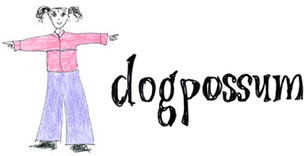June 14, 2005
ah, blogging
Things continue here at thesis-central with some degree of productivity. The first draft is done, but MAN it needs some work. Right now I'm going through my drafts (there's nothing quite as wonderful as holding a printed out copy of your thesis close to your heart), figuring out what I've written in each chapter, noting that, then noting what else needs to be included in each chapter, noting things that need to be revisited or brought up in my introduction or conclusion and figuring out which clever bits I've missed and need to include somewhere.
Something to think about:
This is a bit of writing about racialised diaspora, drawing on work by Paul Gilroy (for a bit more about Gilroy, check out this discussion); Jennifer kelly (who's done some interesting work on black youth in Canada, with a particular interest in music); Angela Y. Davis (whose book about the blues (check this ref for a discussion) was a nicely feminist bit of work on Afro-American identity in the 30s); and Albert Murray (a music historian whose book stomping the blues is quite influential in the swing community, and offers a nice discussion of blues in cultural context).
This bit of writing that I've linked to above was really just jotting down of ideas prompted by the things I was reading. Gilroy and Davis are pretty damn radical writers, whose interests are centered on Afro-American history and civil rights. I'm not entirely satisfied with Gilroy's work, and haven't gone into him much in my thesis - I prefer Stuart Hall's work. Hall is also a black writer, but he's Jamaican born and based in the UK. His work is more useful for me because it fits into that Birmingham School, and because it's British. This article actually takes up the idea of the Birmingham School in cultural studies, and their theoretical work as diaspora. I do love Stuart Hall.
so, at any rate, if you read this bit of writing and follow up some of the links I've supplied above, you'll gather that I'm offering a reading of history and ethnicity in swing dance that draws on the notion of diaspora. Please note that this 'diaspora' stuff works as a theoretical or cultural construct in much of the literature. I'm also most interested in talking about diaspora in terms of cultural production and media (Cunningham and Sinclair's book Floating Lives is heading in the right direction, though it's not an entirely satisfying book).
So I start with the idea that swing dancers are a fandom. I've actually started with a chapter on Afro-American vernacular dance, and addressed the issue of diaspora there. The key point I make here is that the Afro-American diaspora can be traced through dance forms, culture and uses. The next chapter looks at how these Afro-American dance forms have moved across time and space to contemporary lindyhop communities. I make the point that these dances are no longer vernacular, and that their cultural use has changed. I also discuss the importance of 'history' in swing culture today, and its uses in justifying the idea of 'reviving' dances; musical choices, etc etc.
A key point in my thesis is the global/local nature of swing dance today - local communities all over the world; global community with local differences. You can see how this leads to/from a discussion of diaspora.
One of my key criticisms of swing culture today is attached to the lack of historical consciousness in terms of race and ethnic identity in the international swing dance community. As a largely white, middle class community in Melbourne, there's very little in the way of public or community attention to discussing race and ethnicty. 'Being Black' is perhaps more likely to be translated to 'being a good dancer/musician'. Similarly, dancers' are rarely presented in terms of their ethnic or racial identity.
And as I've noted earlier.
I think it's important to interrogate these versions of history. And to offer an alternative that remembers race and ethnicity.
While most swing dancers today are not Afro-American, the Afro-American history of the dance is still relevent and important to swing dance culture as a whole.
The most pressing of reasons for this argument is that we are today reproducing patterns of exploitation and oppression and marginalisation within our dance communities, and reproducing these ideological processes in our dancing. Dance is not neutral - it is a discourse. With this point in mind, we can also argue that dance can also be used as a tool for liberation and resistance and transgression and all those other lovely things. This alternative can benefit from a retelling of history which includes - celebrates! - the history Afro-American diaspora.
NB I've edited out some bits which were just repeating what I'd said in an earlier post.
post it, post it! i reccomend angela Y. davis' book if you're into that stuff...
Posted by: dogpossum at June 16, 2005 02:02 PMYears and years ago there was a beautiful young blues singer named Judy Jaques. Not so long ago she was interviewed and said a great thing: 'what on earth did a 15 year old from Beaumaris know about THE BLUES'.
I have a post for my blog, which is waiting in Drafts, about Big Mama Thornton, Ma Rainey, and Bessie Smith. One of them toured in 1906 with her band The Blues Assassinators. As a teenager I loved Empty Bed Blues, and I had no idea about sex. Must have seen the future!
